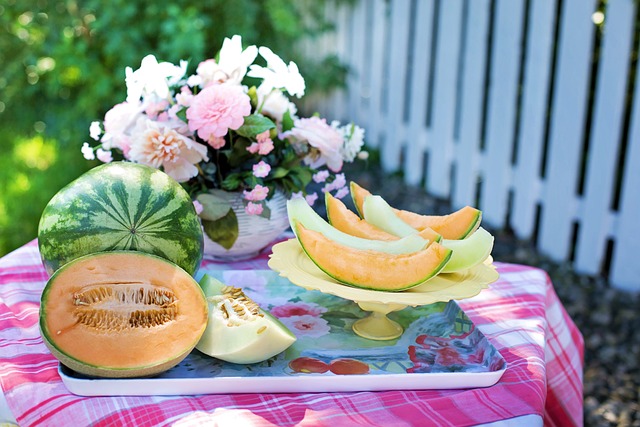Cantaloupe baby food I Cantaloupe for Babies
Cantaloupe baby food is a healthy and delicious way to give your baby the nutrients they need. Made with only the freshest ingredients, this baby food is packed with vitamins and minerals. Learn more about Cantaloupe baby food and how it can benefit your child’s health here.
“If you’re building something, you should be looking at the data. If you’re not looking at the data, you’re flying blind.” — Kevin Spacey
In light of the recent Facebook/Cambridge Analytica debacle, the role of data in business has become more and more prominent. In the past, businesses have been reluctant to share data and have kept this data for themselves. But as we move into the big data age, businesses are realizing that sharing and analyzing data is not a threat. It is a necessity.
Cantaloupe for Babies
There are numerous benefits to eating cantaloupe for babies. Cantaloupe is high in important nutrients such as vitamin C and A, which are needed for a healthy immune system. It also containsrich flavors that stimulate the palate and help encourage healthy eating habits from an early age. In addition, cantaloupe is a good source of potassium, vitamin K, dietary fiber and vitamin B6, which supports nerve function and general health.
There are many different varieties of cantaloupes available on the market, so parents have plenty of options when it comes to choosing a baby food that will suits their child’s diet and preferences. Some families prefer to feed their babies cantaloupe every day, while others may dilute it with other fruits or flavors to make it more palatable for them.
Feeding a baby cantaloupe is a great way to ensure they get the important nutrients they need and develop healthy eating habits from an early age. Roll ups or cups made from cantaloupe can be filled with lactose-free milk or semi-skimmed cow’s milk mixed with some chia seeds, honey or agave nectar for added nutrients and flavor.
Cantaloupe is a good source of minerals. It contains high amount of potassium, phosphorous, calcium and magnesium. These minerals are important for the development of baby’s bones, teeth and muscles. Cantaloupe is rich in beta-carotene, which is an antioxidant that improves the immune system and protects the body from free radical damage.
It is also a good source of vitamin C which strengthens the immune system. Cantaloupe is not just good for your baby’s health, but also for your health. It contains vitamin B6, which helps convert homocysteine levels to normal. Homocysteine levels are high in people with heart disease and stroke.
Cantaloupe is a great fruit for babies, as it is packed with nutrients that are essential for their development. Cantaloupe is a good source of vitamins A and C, as well as potassium and fiber. All of these nutrients are important for baby’s growth and development. Cantaloupe is also a low-allergen food, making it a good option for babies who are prone to allergies.

Looking for a delicious and nutritious fruit to put on your baby’s plate? Cantaloupe is a great option that offers plenty of Vitamin C, antioxidants, potassium, and other essential nutrients. Not only is cantaloupe a deliciously sweet fruit, but it’s also low in sugar and calories, making it a perfect healthy snack for babies. Plus, its slender shape makes cutting and sucking on it easy for infants.
There are many different ways to serve cantaloupe, both as a snack and as part of a meal. Some easy and tasty ways to enjoy cantaloupe include:
-Cut it into small pieces and eat it as a healthy snack.
-Serve it cut up with some yogurt or cottage cheese for a balanced and nutritious breakfast or lunch.
-Mix it with some shredded carrots or celery for a sweet and savory salad.
Many parents cringe when they hear the phrase “cantaloupe baby food” – but in actuality, this type of diet could provide your child with all the nutrients needed to grow up healthy and strong. Cantaloupe contains plenty of vital vitamins and minerals, some of which are not typically found in other fruits. These nutrients include potassium, magnesium, vitamin A, vitamin C, iron and more.
In addition to providing essential vitamins and minerals, cantaloupe is also a good source of dietary fiber. This high-caliber fruit can help busy parents meet their children’s daily nutritional needs easily and quickly. Check out these other benefits of feeding your child cantaloupe as baby food:
It is naturally low in sugar (which is important for keeping children’s blood sugar levels stable).
Cantaloupe is lower in calories than many other fruits and vegetables, making it a healthy snack alternative for kids.
It is naturally sweetened, so there is no need for pantry staples like sugar or honey when adding cantaloupe to a child’s diet.
Cantaloupe baby food combinations
Cantaloupe baby food combinations are interesting because you can use so many different fruits in them to get the nutrients your little one needs. You can either mix everything up and have a fruit salad type of dish, or choose a specific fruit to emphasize. Here are some cantaloupe baby food combinations that you might want to try:
-Cantaloupe and rice milk: This will give your child extra proteins and carbs, which they need.
-Cantaloupe and breast milk: Just like with rice milk, this will give your child plenty of proteins and carbs
Honeydew melon for babies
-Cantaloupe and formula: Formula is perfect for supplemental feeding as it contains all the essential nutrients a baby needs.
-Cantaloupe and solid foods: Start slowly by introducing small amounts of cooked or raw vegetables or fruits to see if your little one tolerates them well. Once they are eating them well, you can begin adding more Cantaloupe based dinners.
Cantaloupe baby food puree
Looking for a healthy, nutritious addition to your baby’s diet? Cantaloupe is a great option! Here are six benefits of eating cantaloupe as baby food:
- It’s low in sugar, making it a healthy snack for children.
- It’s packed with vitamins, minerals and antioxidants, which are beneficial for the development of young children’s brains and bodies.
- It’s a good source of dietary fiber, which helps regulate digestion and prevents inflammation in the gut.
- It contains potassium, which is important for maintaining a healthy heart and blood pressure levels.
- It’s a moderate source of protein, which is critical for building strong immune system function and providing energy throughout the day.
- Finally, cantaloupe is an excellent source of vitamins A and C, which support Optimal Cholesterol Levels and general overall health
Cantaloupe puree recipe
There wouldn’t be much of a summertime feast without cantaloupe, so here’s a delicious and easy recipe for pureeing the juicy fruit.
Ingredients:
-1/2 cup sugar
-1 teaspoon cornstarch
-1/4 teaspoon salt
-1/4 teaspoon black pepper
-1/2 cup cantaloupe, cubed
-3 tablespoons lemon juice
Instructions:
- In a medium saucepan over medium heat, combine the sugar, cornstarch, salt, and pepper. Stir in the cantaloupe and lemon juice. Cook until the mixture thickens and bubbly. Serve hot.
Cantaloupe for baby’s health benefits
Cantaloupe is a great source of both Vitamin A and Vitamin C. Vitamin A is essential for the development of the visual system in children, and can help prevent night blindness.
Vitamin C helps protect against bacterial and viral infections, and has been linked to a reduced risk of cardiovascular disease, cancer, and asthma. Both vitamins are found in cantaloupe in high concentrations, so enjoy this fruit for its many health benefits!














No comments:
Post a Comment